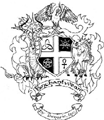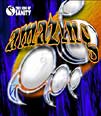Ajowan is a plant and an herb. Ajowan is used as a spice.
- botanical information
- origin
- part used
- magick correspondences and uses
- essential oil
- health care
- Ayurvedic herbalism
- cautions and contraindications
botanical information:
Botanical name: Trachyspermum ammi or Carum copticum ; formerly Carum ajowan
Use the botanical name when ordering seeds (bulbs, etc.) or when looking up information in the library. Common names vary by nation, culture, and region, and sometimes the same common name is applied to different plants.
Common name: ajowan, ajwain, bishop’s weed, carom, carum
Arabic name: kamme muluki, talib-el koubs
Chinese (Cantonese) name: yan douh johng wuih heung
Chinese (Mandarin) name: yin du zang hui xiang
Dutch name: ajowan
French name: l’ajowan
German name: adiowan, Indischer kummel
Indian name: ajvini, ajwain, javanee, lovage, omum, yamani carom
Italian name: ajowan
Russian name: ajova, azhgon
Spanish name: ajowan
Turkish name: emmus, misir anason
Family: Apiaceae (parsley)
origin:
Origin: southern India
part used:
Part used: seed
magickal correspondences and uses:
Magickal substitutions: Rosemary usually may be safely substituted for any herb in magick spells and rituals. Roses may safely be substituted for any flower.
essential oil:
Safety Information: Ajowan essential oil (Trachyspermum copticum) is hazardous and should not be used in aromatherapy, ingested, or come in contact with the skin.
health care uses:
Health Notice: Attempting to be an amateur doctor is potentially dangerous to your health. This web page is not professional medical advice. Nothing on this website should be considered as a substitute or replacement for professional medical advice. Persons should seek the advice of qualified health providers. Self-medication should not be used as a substitute for professional medical care. Please confirm all self-medication with your doctor or health care professional. See the article on healing for recommended healers.
traditional medicine:
Traditional Medicine: While many traditional practices have been scientifically verified, some are now known to be dangerous. Seek the advice of qualified health care providers.
|
Traditional Use of Essential Oil: Used in Ayurvedic medicine to treat Cholera. Information courtesy of Mountain Rose Herbs |
Ayurvedic herbalism:
Ayurvedic Doshas: KV- P+ Pitta increases; Kapha decreases; Vata decreases
For more information, see the article on Ayurvedic medicine.
cautions and contraindications:
Essential oil warning: Ajowan essential oil (Trachyspermum copticum) is hazardous and should not be used in aromatherapy, ingested, or come in contact with the skin.
Wild gathering: Avoid wild gathering. Some plants are endangered species. Please grow your own herbs in your own goddess garden (or window boxes).
See also: herbs
next herb
herbs |
||
| previous plant |
next plant |














